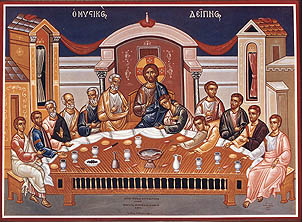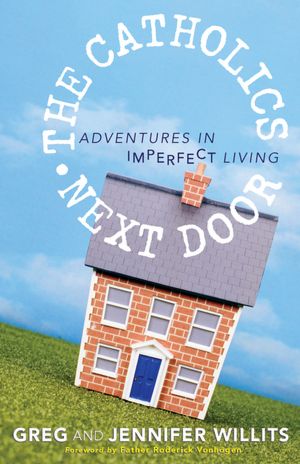
Dear Theophilus,
I’ve recently finished reading Rediscover Catholicism by Matthew Kelly, and was completely floored by what I read between its covers. I bought the book from my parish who had ordered the book in bulk through the Dynamic Catholic Book Program. Essentially, Dynamic Catholic aims to get Catholic books into the hands of Catholics to help bolster their knowledge and understanding of the Catholic faith. If your parish isn’t already involved in the program, I strongly encourage you to approach your pastor about becoming involved in this program.
Usually, once I’ve read a book I’ve particularly enjoyed, I write about it here in the hopes of sharing what I’ve learned with you. What I’ve found with Rediscover Catholicism is that there is so much presented so well, I could never dream of doing it justice. Instead, I would like to share with you my marginalia of Matthew Kelly’s book.
I have the bad habit of marking up books as I read them; underlining what I find to be strikingly profound and jotting my own notes in the margins – marginalia. This is even easier when using my e-reader – though I find it also slows me down a bit. Although I didn’t have a pen handy every time I picked up Rediscover Catholicism (hence the big jump between quotes), below are a few of the ideas I highlighted or jotted down as I made my way through Kelly’s Spiritual Guide to Living with Passion & Purpose:
Matthew Kelly’s words are in bold type.
My own thoughts are in italics.
There is a genius in Catholicism, if we will just take the time and make the effort to humbly explore it. (p. 18)
…we confuse pleasure with happiness. (p. 37)
And what is true happiness but resting in God – returning to the idea of St. Augustine
Discipline is the key to discipleship. (p. 40)
Freedom is the strength of character and the self-possession to do what is good, true, noble, and right. (p. 40)
One of the greatest tragedies of modern Catholicism is that as Catholics we are no longer considered a spiritual people. (p. 141)
“As a result many of his disciples returned to their former way of life and no longer accompanied him.” (John 6:66) (p. 188)
I just found it interesting that turning away from Christ was accompanied by the number 666.
God rested on the seventh day because he foresaw our need for rest. (p. 222)
It (the Mass) isn’t designed to help him (God); it’s designed to help us. (p. 222)
(With regards to the Saints) Many are surprised, even scandalized, that God would use people with such monumental vices and shortcomings to reach out to humanity and give us hope for the future. (pp. 234-235)
If these people could do the will of God – then He can work through me as well – so long as I let Him.
The ultimate temptation is to read the Bible and see ourselves only in Jesus. (p. 235)
Uncertainty is a spiritual gift designed to help us grow. (p. 237)
God asks questions to educate. (p. 238)
The only diet most of us need is discipline. But we don’t want discipline. … We want someone to tell us, “You can be healthy and happy without discipline.” (p. 242)
In the extremes of the modern world, many see a call to discipline/discipleship as a call to asceticism – however, it is not so. As Michael Coren says – people would rather have a grandfatherly figure in God as opposed to God the Father.
The Church’s message stands so counter to that of the present culture because the Church is driven by this incredible vision for the human person. (p. 243)
Imagine a culture in which law-makers were less concerned with special interests and more concerned with creating a society that encourage and actively helped people to become the-best-version-of-themselves. (p. 243)
The notion of freedom proclaimed by the modern world is anti-discipline, But true freedom cannot be separated from discipline. (p. 245)
The demons of our modern age are in some cases subtler that the demons of Jesus’ time. (p. 249)
Our faith seeks to integrate the relationship between body and soul. (p. 253)
Fasting is radically countercultural, but so is Christianity. (p. 255)
Prayer doesn’t change God; prayer changes us. (p. 274)
One of the most incredible things about our Catholic faith is the vastness of our spiritual universe. (p. 276)
The primary concern of a Catholic leader must be a dedication to the spiritual life. (p. 307)
Jesus’ whole method of leadership focused on turning the hierarchy upside down. (p. 308)
Christ put the needs of the community before the rights of the individual. His was a leadership of servitude.
As I write these thoughts, dear Theophilus, I can’t help but see them as a bit disjointed out of context of the book’s whole. The alternative, however, would be to write out the entire book here, along with my thoughts. However, I hope this list of marginalia whets your appetite to read Rediscover Catholicism.
Similarly, I will often tweet as I read in the hopes that others will also meditate on these catch phrases as I do throughout the day. If you’re so inclined you can follow my thoughts as @fishermansshoes.















